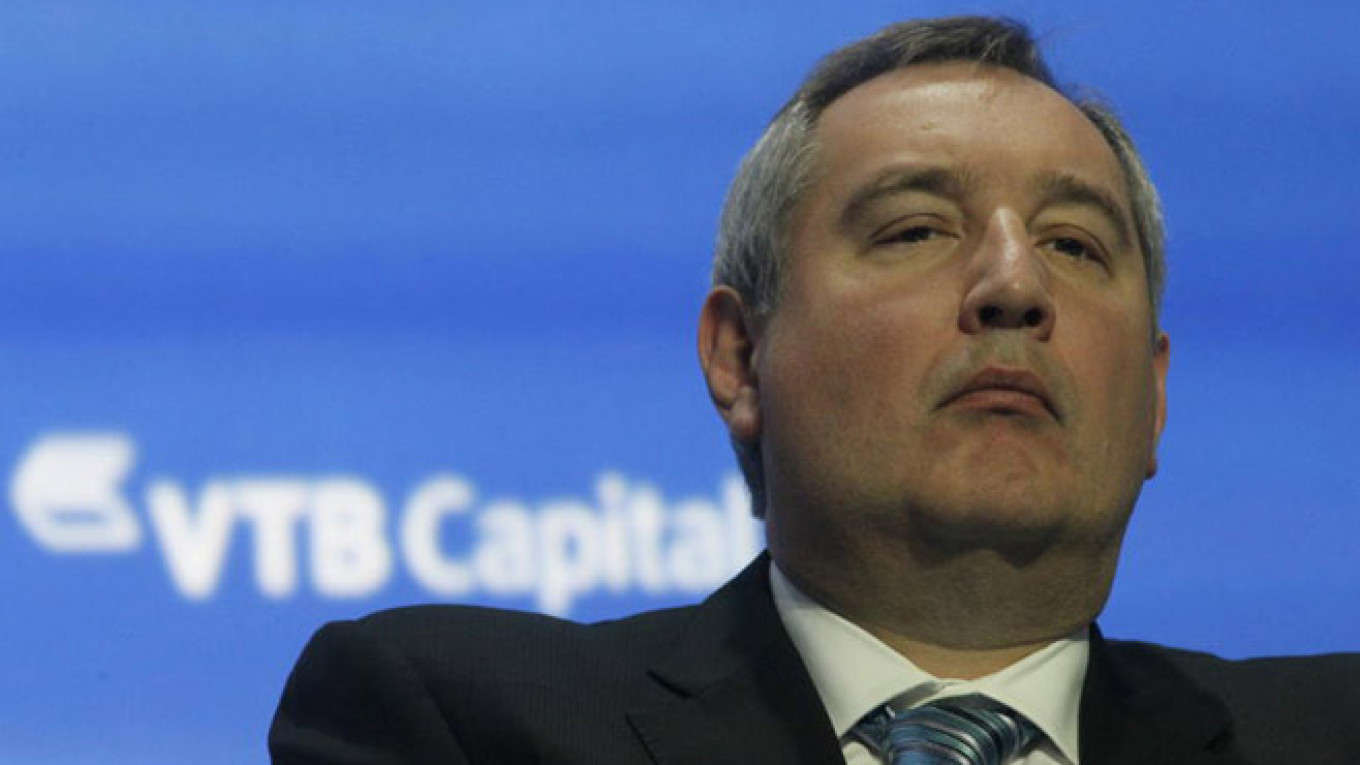After decades of planning and delays, Russia will have the world's first floating nuclear power station ready in 2016, Deputy Prime Minister Dmitry Rogozin said Tuesday, the Interfax news agency reported.
"It is basically an atomic reactor that can be docked to coastal infrastructure, and it will provide energy through a cable to any Arctic city," said Rogozin, who oversees Russia's activities in the Arctic.
"The first such floating energy station will be ready by October next year," Rogozin added.
Floating nuclear power stations are by no means a new idea for Russia, which has been talking about building a fleet of such stations since the early 2000s.
In 2007 construction began on the first floating station, called the Akademik Lomonosov, but after numerous delays the vessel has yet to become fully operational.
The floating power station, which can generate a maximum of 70 megawatts of power, was supposed to dock in the far eastern region of Kamchatka in 2017. However, the region is behind on building the necessary coastal infrastructure, news agency RIA Novosti reported last year.
Rogozin's timeline is consistent with remarks made late last year by Alexei Kadilov, CEO of the Baltic Shipyard in St. Petersburg, which is building the floating atomic energy station.
Kadilov told journalists in October that the Akademik Lomonosov would be completed and ready by September 2016, RIA Novosti reported.
Environmentalists have raised concerns about the wisdom of floating atomic energy stations, worrying one catastrophic mistake could devastate the Arctic's fragile ecosystem.
However, Russia is eager to develop its Arctic territories, which are believed to contain immense and nearly untapped stockpiles of natural resources. After letting much of its infrastructure in the Arctic decay following the collapse of the Soviet Union, Russia began building new military bases in the region late last year.
A Message from The Moscow Times:
Dear readers,
We are facing unprecedented challenges. Russia's Prosecutor General's Office has designated The Moscow Times as an "undesirable" organization, criminalizing our work and putting our staff at risk of prosecution. This follows our earlier unjust labeling as a "foreign agent."
These actions are direct attempts to silence independent journalism in Russia. The authorities claim our work "discredits the decisions of the Russian leadership." We see things differently: we strive to provide accurate, unbiased reporting on Russia.
We, the journalists of The Moscow Times, refuse to be silenced. But to continue our work, we need your help.
Your support, no matter how small, makes a world of difference. If you can, please support us monthly starting from just $2. It's quick to set up, and every contribution makes a significant impact.
By supporting The Moscow Times, you're defending open, independent journalism in the face of repression. Thank you for standing with us.
Remind me later.


